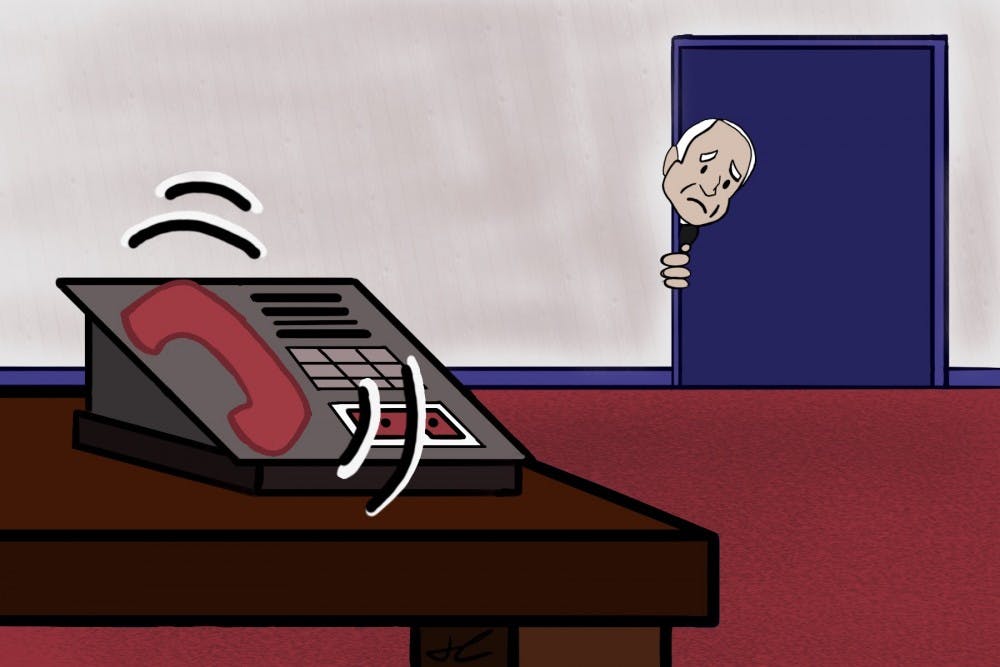In an era of revived activism, government representatives are failing to keep up with the amount of commentary they’re receiving. That’s no excuse — they need to expand capacity to take constituent comments.
Since the election of Donald Trump, activists have been making phone calls at an unprecedented rate. When former congressional staffers began to publish how-to guides on contacting legislators, the public took note, beginning to prize phone calls above the previously accepted route of email.
The volume of calls has not let up. Mailing lists like Daily Action remind their users to contact representatives regularly and inundate them with calls urging them to reject a candidate for a post or to take a position on current legislation.
That is what democracy is supposed to look like, and our representatives are failing to keep up.
Recently, Senator John McCain’s phone lines have been constantly tied up, resulting in callers being redirected to an answering machine that, up until last week, directed listeners to an email address that then told users they were using the wrong contact information and that they should instead go through a web form.
While McCain reformed his answering machine, likely in reaction to bad press coming from those angry with exactly this problem, Senators McCain and Flake both remain difficult to reach by telephone.
The inability of citizens to contact their representatives shuts down citizens’ ability to interact with the government, undermining representation in a representative democracy.
That leaves massive cracks in the system, in which large-scale corruption can occur or government obfuscation can leak in.
For example, Governor Doug Ducey has recently been called out for false statements about who exactly was running the case against driver’s licenses for Deferred Action for Childhood Arrival employment permission documentation. This took years to discover, in part because Ducey himself is hard to engage.
The lack of willingness to listen to citizen concerns means that Ducey is optimally suited to hide his actions from the public and continue to use taxpayer funds to finance actions harmful to many at this university.
As students at a state university, we are uniquely at the mercy of government allocation of taxpayer dollars, and these phones represent our primary line to power. That matters, particularly when looking at instances like 2015's cut of $40 million or this year's discussion around tuition freezes .
Jesse Avalos of ASU's Young Democrats explains that the government is a tool, but that effective governance requires citizen guidance, often in the form of student phone calls.
"Activism is showing that there needs to be a lot more work done in our government... Your work isn't done once you're elected. You still have to serve your constituents," he said.
Legislators cannot serve their constituents when their lines are too busy or their numbers are near inaccessible. All the people's representatives need to increase their capacity for citizen involvement, whether that means installing more phone capabilities or hosting more town halls. Trump's election has woken up organizers who will continue to make noise, and it is representatives' most basic job to hear them out.
Failure to listen to activists is a failure of representative democracy. Our representatives need to expand their ability to listen immediately.
Reach the columnist at benjamin.steele@asu.edu or follow @blsteele17 on Twitter.
Editor’s note: The opinions presented in this column are the author’s and do not imply any endorsement from The State Press or its editors.
Want to join the conversation? Send an email to opiniondesk.statepress@gmail.com. Keep letters under 300 words and be sure to include your university affiliation. Anonymity will not be granted.
Like The State Press on Facebook and follow @statepress on Twitter.





